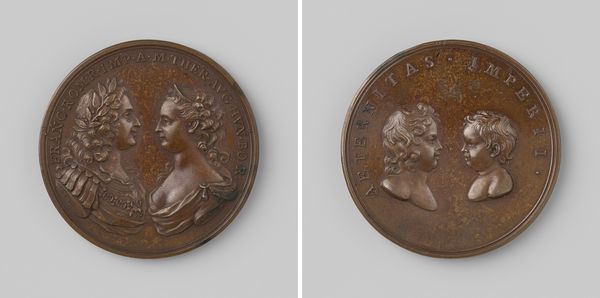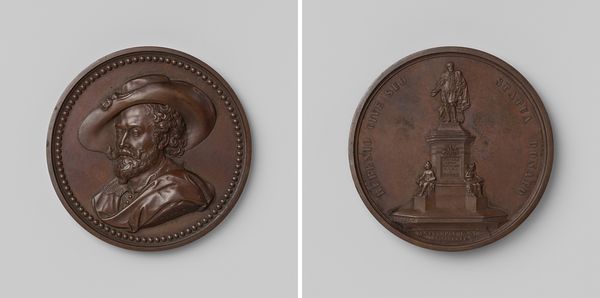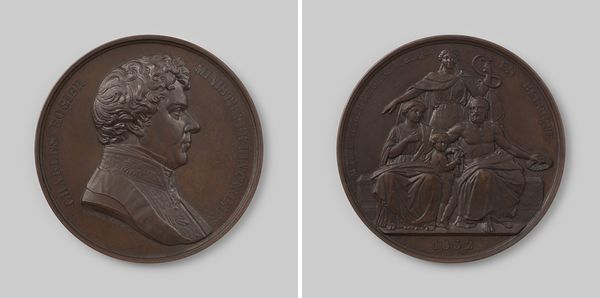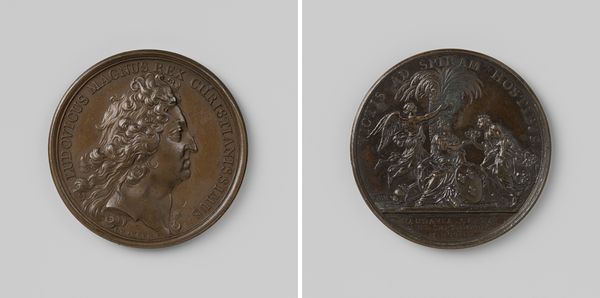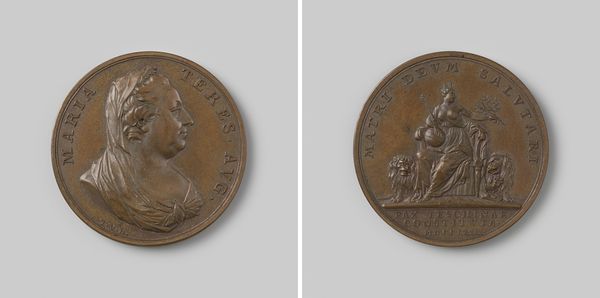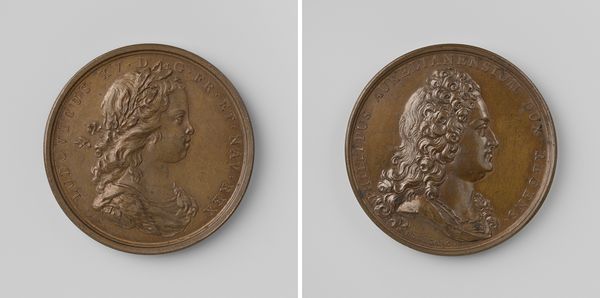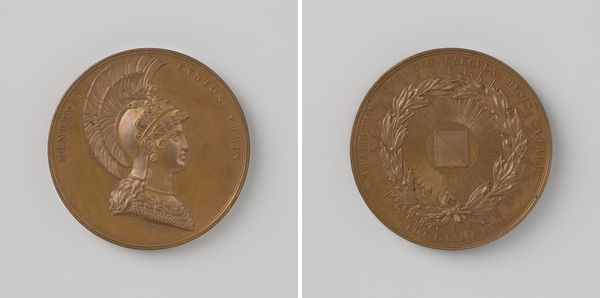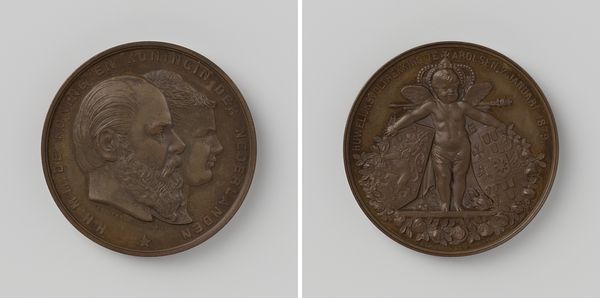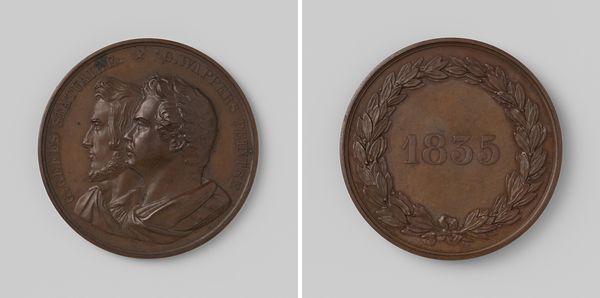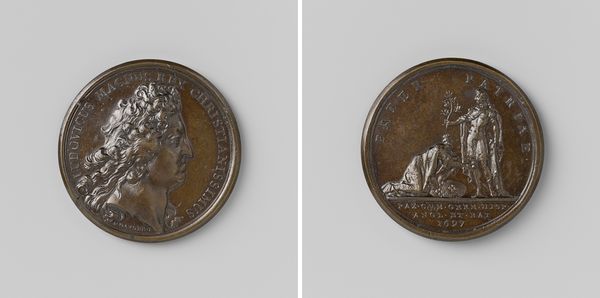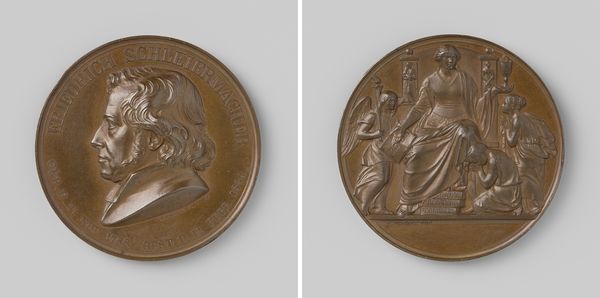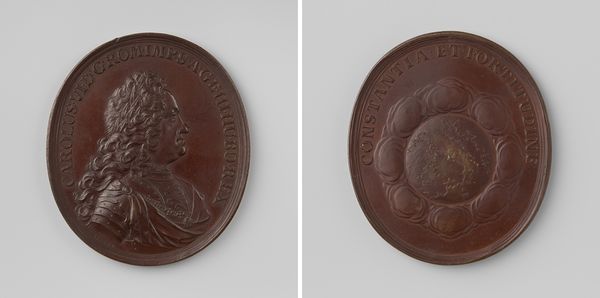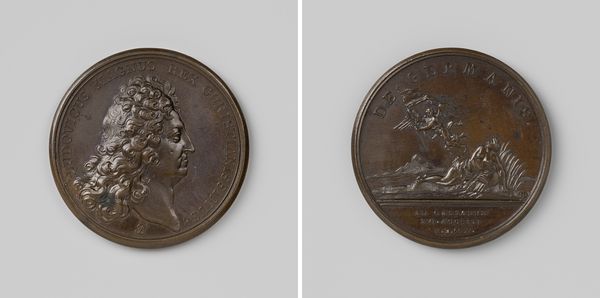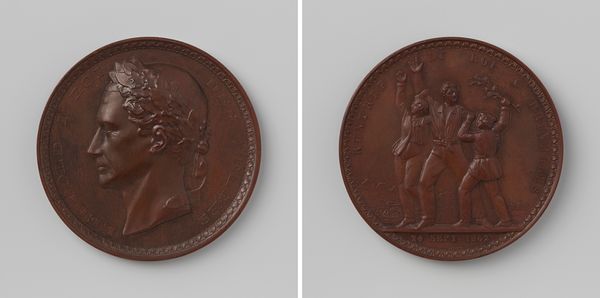
Dimensions: diameter 6.8 cm, weight 1382 gr
Copyright: Rijks Museum: Open Domain
Editor: This is a bronze sculpture by Leopold Wiener from 1857, titled "Overlijden van Felix de Merode, minister van Staat te Brussel" – or, "The Death of Felix de Merode, Minister of State in Brussels." The solemn tone and formal portraiture strike me as deeply rooted in commemorating a powerful figure. What can you tell me about the significance of this piece beyond its aesthetic representation? Curator: This commemorative medal offers us a window into the political and social climate of 19th-century Belgium. De Merode was a key figure in the Belgian Revolution, advocating for greater autonomy from the Netherlands. Consider the loaded context: this medal, crafted years after his death, acts as a form of historical legitimization, mythologizing a figure instrumental in shaping Belgian identity. Editor: So, the sculpture becomes a tool for solidifying a specific national narrative? Curator: Precisely. Medals like this weren't just about honoring individuals; they were powerful mechanisms in constructing a shared cultural memory. Who gets remembered, and how, reflects broader societal values and power dynamics. The use of bronze, a traditionally noble material, further elevates De Merode’s status, linking him to ideas of permanence and strength. Note the wreaths too, they underscore ideas about religion and its link to the Belgian state. Editor: I see, it’s about encoding historical narratives into objects. Looking at the inscriptions and imagery now, they feel less like simple biography and more like deliberate nation-building. I had only considered this as an artifact of sorrow, now it seems an instrument of Belgian political consolidation. Curator: Absolutely! Art is rarely neutral; it actively participates in the construction and maintenance of power structures. This seemingly simple commemorative medal opens up broader discussions on nationhood, representation, and the role of art in shaping our understanding of the past. Editor: Thank you; this has reshaped how I view not only this work but others, seeing art's deep interweaving with history and power. Curator: My pleasure, art demands interrogation and situated awareness. It's not merely aesthetic admiration, but rather engagement with what it says about how societies understand and legitimize themselves.
Comments
No comments
Be the first to comment and join the conversation on the ultimate creative platform.
